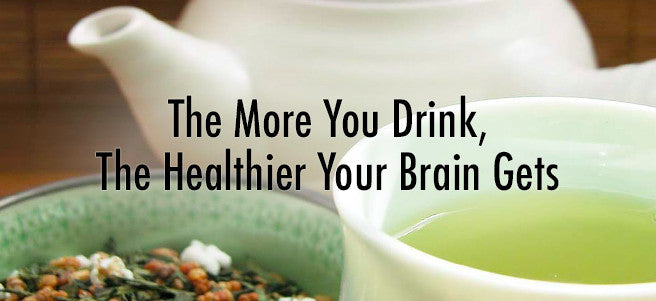Tea: the Brain Drink
Posted by GUEST BLOGGER .

Many of us swear by our cups of tea helps us to stay sharp. It was said many inventors and scientists, including Einstein, were avid tea drinkers.
Does tea really help with memory?
Let’s have a look at some of the researches done so far to discover the power of tea.
Over 3000 years ago, the first cup of tea was made serendipitously, when a tea leaf fell into a cup of hot water.
Since then tea has been regarded as the elixir for longevity.
Many Chinese believe regular tea drinking keeps their mind sharp and their body in good health. In the recent decades, as tea drinking becomes synonymous with good health, many scientists set out to research on the benefits of tea drinking.
Recent medical studies have shown that tea is good for the mind. An indicative research suggests that it may help ward off age-related degenerative brain disorders when green or black tea is drunk regularly. “We looked at the protective effects of two tea extracts and their main constituents, called catechins, on dying nerve cells,” says Dr Remi Quirion of the Institute of Neurosciences, Mental Health and Addiction. “Our findings showed that… both black and green tea extracts and catechins strongly blocked [the] death of neurons.” 1
While most researches were done with green and black tea due to their popularity, all tea types (black, oolong, green and white) come from the same plant (Camellia Sinensis), so they contain similar nutritional make-up.
White tea, being the least processed, is believed to be the best source of catechins, with green tea coming close. The oxidation / fermentation process, which has given black tea its unique taste, reduces the effectiveness of catechins in tea.
So now you have another reason to top up your cup with some more tea – to keep your mental faculties stay well tuned.
Sources:
- European Journal of Neuroscience . September 21, 2005, 25(38):8807-8814
TAGS:
SHARE:

AUSTRALIA'S FINEST LOOSE LEAF TEAS
Explore Australia's largest selection of Premium Teas & All-Natural Organic Herbal Blends.


